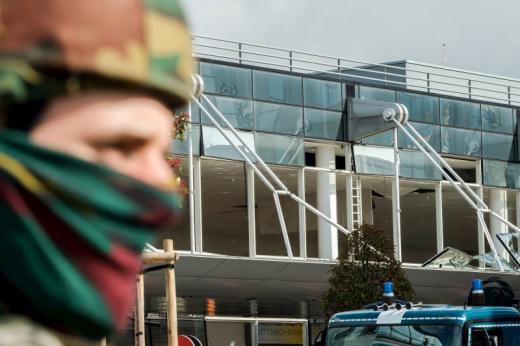
Once again, the heart of Europe is under attack by religious extremist; by terrorists; by citizens. It was not a matter of if, but when. Europe, along with its allies, is fighting what seems to be an impossible war against ISIS. Some argue for a full military intervention, some argue for diplomacy. Some argue higher security, some argue that our lives should go on as usual and let the terrorists know they will not win by attacking our democracies and values.
What is different this time, is that it is the same cell in which carried out the Paris bombings that attacked Brussels. How can a cell; hunted for months by Belgian and French police, still be able to carry this out? Even after, only four days prior, the man behind the Paris bombings, Salah Abdesalam, was captured? The Belgian police will have a lot to answer for in the coming days.
The Norwegian correspondent Frank Rossavik writes about parallel communities that exists in more or less every country. There are known areas in nearly every big city around Europe with communities living completely separate from the rest. No-go areas, where police literally (unofficially) have no power, areas controlled by it’s own “juristically systems” and their own interpretations of right and wrong, have existed for decades. This is not an Islamic issue alone, far from it, but it is a great problem authorities need to take seriously and start figuring out as it is in environments like these extremism and negative attitudes can be nurtured and continued.
Nevertheless, it is not only in these environments we see terrorist cells pop up and kids being recruited. There is no formula for who can or will be recruited; we see middleclass teenagers from the West leave their friends and families, without any strong religious beliefs prior to the joining of ISIS. There are the people from the no-go areas, and then there are young adults from poor, rural areas, where their only option is join – or get killed. Many people, especially in Syria today, only join ISIS because they earn a salary and thus can take care of their family.
The common denominator for all the groups of recruits, no matter the background or social status, is based on two things; lack of opportunity and lack of education. Authorities need to acknowledge the link between, and the possibility it produces, a better education system and national security. A system where schools in low-income areas are being prioritized, where as much attention are given upgrading schools, the education level, and last but not least; social services at the schools in all parts of the society, will have enormous benefits. Not only is this important on an individual level and for the country’s future when producing educated citizens; it also serves as a counter-violent extremism measure.
If children and youth have access to both good educational systems and schools that are not rotten and low-funded only because of the area they live in, as well as psychosocial security networks of advisors, optional vocational training, job- and application training, along with all sorts of other resources to make sure everyone are at their best, one will have come a long way in countering violent extremist behavior. Although we can never “save” everyone, this would be just as justifiable as spending years and years and trillions of dollars on military operations and traditional national security measures.
It is when people feel like they have no opportunities, are not being seen or heard, or feel like their religion is being stamped on, that it is easy to get caught in a web of lies, manipulation and false promises. This goes for the kid down the street you automatically think has the same possibilities and base as you do, as much as the poor people in war-torn countries deprived of everything. We need to make sure we invite everyone along the way to democracy, an open society and to share our inclusive values. We have to stop only saying that we do; we need to start doing it.
—
Kaja Wold is a first-year graduate student studying Development Management at
American University, School of International Service